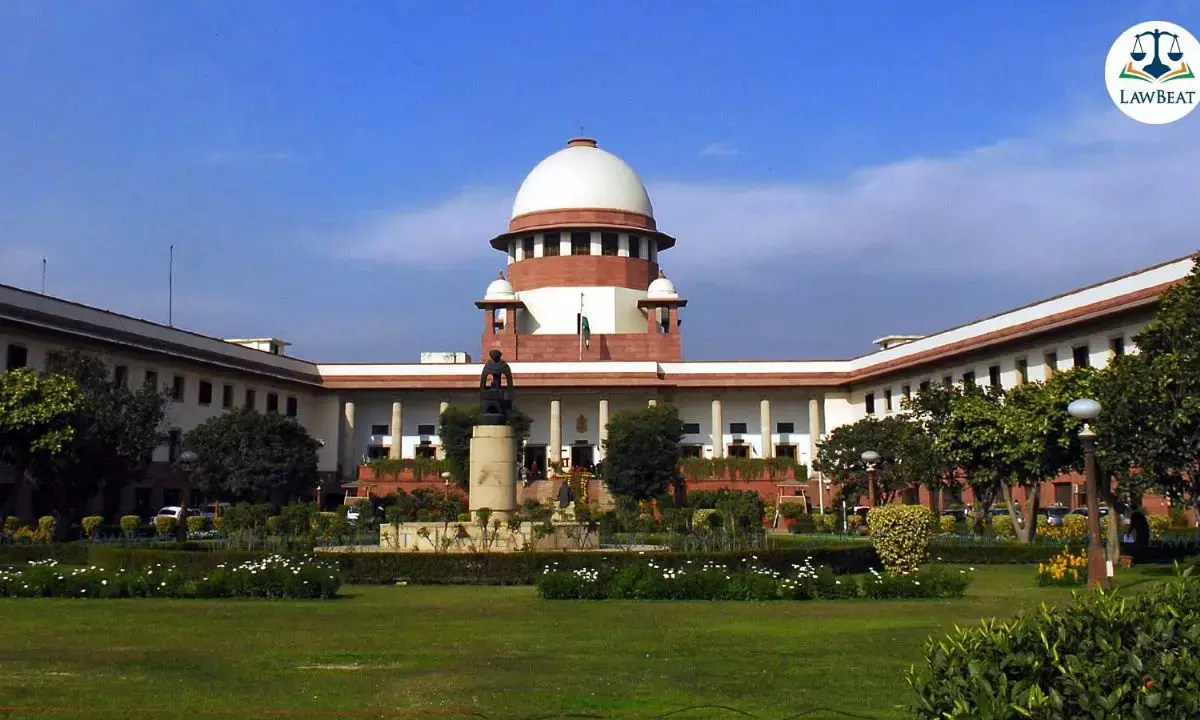Safe Roads a Right Under Article 21; State Must Maintain Highways: SC

The Supreme Court recently ruled that the right to safe, well-maintained, and motorable roads is an essential part of the right to life under Article 21 of the Constitution.
The Court underlined that it is the responsibility of the State to develop and maintain roads directly under its control.
A bench of Justices J.B. Pardiwala and R. Mahadevan made these observations while dismissing a plea by Umri Pooph Pratappur (UPP) Tollways Pvt. Ltd, a private concessionaire that had challenged the Madhya Pradesh High Court’s decision to quash arbitration proceedings initiated by it under the Arbitration and Conciliation Act, 1996.
The Top Court upheld the High Court’s finding that disputes arising from concession agreement in question fall exclusively within the jurisdiction of the Madhya Pradesh Arbitration Tribunal constituted under the Madhya Pradesh Madhyastham Adhikaran Adhiniyam, 1983.
The case arose from a concession agreement dated January 5, 2012 between UPP Tollways and the Madhya Pradesh Road Development Corporation (MPRDC) for development of the Umri-Pooph-Pratappur Road on a Build, Operate and Transfer basis.
The total project cost was Rs. 73.68 crore. Disputes later arose regarding delays, redesigns and cost escalations, and the appellant raised monetary claims totalling over Rs. 280 crore.
UPP initially invoked arbitration under the 1996 Act through the International Centre for Alternative Dispute Resolution (ICADR), relying on Clause 44.3.1 of the agreement. However, MPRDC challenged this before the Madhya Pradesh High Court, arguing that such disputes can only be adjudicated by the State’s statutory Arbitration Tribunal.
UPP contended that since it was a private entity and not a “State” under Article 12, no writ could be filed against it.
Rejecting this, the Top Court said the maintainability of a writ petition is not confined to enforcement of fundamental rights alone. Even private parties may be amenable to writ jurisdiction where a public law element is involved.
The Court held that the contract for laying of a State Highway, though executed by a private party, involves a public function when awarded by a government-controlled corporation.
The bench noted that MPRDC, being a State-owned entity, had approached the High Court not to enforce a contract but to prevent circumvention of the statutory mechanism provided under the 1983 Act. The Court held that disputes arising from such works contracts must be referred to the State’s Arbitration Tribunal notwithstanding the existence of any private arbitration clause.
Clause 44.3.1 of the concession agreement, which provided for arbitration under ICADR rules, was held to be inoperative in light of the overriding statutory mandate.
The judgment reaffirmed that the Madhya Pradesh Arbitration Tribunal has exclusive jurisdiction over disputes involving works contracts, including concession agreements executed by public sector entities.
Court found that the concession agreement clearly qualified as a "works contract" under Section 2(1)(i) of the 1983 Act, and that the appellant's claims were monetary in nature and therefore covered under Section 2(1)(d). It noted that the Tribunal’s jurisdiction extended even to “ascertainable” money claims, following amendments and prior rulings such as Viva Highways Ltd and L.G. Chaudhary Engineers.
It also observed that the appellant had earlier filed a reference before the Madhya Pradesh Arbitration Tribunal in 2018 but had withdrawn it in 2022 without seeking liberty to revive the claims. Despite this, the appellant initiated a parallel arbitration under the 1996 Act.
The Court termed this as impermissible forum shopping and held it to be barred by the doctrine of election, estoppel, and constructive res judicata.
The bench further noted that the appellant’s conduct aimed at reviving abandoned claims outside the statutory mechanism was “tainted with mala fides” and deserved to be deprecated.
Even on limitation, it held that the claims dating back to 2013-2015 were now barred under Section 43 of the 1996 Act read with the Limitation Act, 1963.
Nonetheless, the Court permitted the appellant to file an application before the Madhya Pradesh Arbitration Tribunal seeking revival of the earlier withdrawn reference petition. It directed that the recall application be filed within two weeks, and the Tribunal take a decision on the same within two more weeks. If allowed, the reference petition must be decided on merits within four months.
Case Title: Umri Pooph Pratappur (UPP) Tollways Pvt Ltd v. MP Road Development Corporation and Anr.
Judgment Date: July 30, 2025
Bench: Justices J.B. Pardiwala and R. Mahadevan
